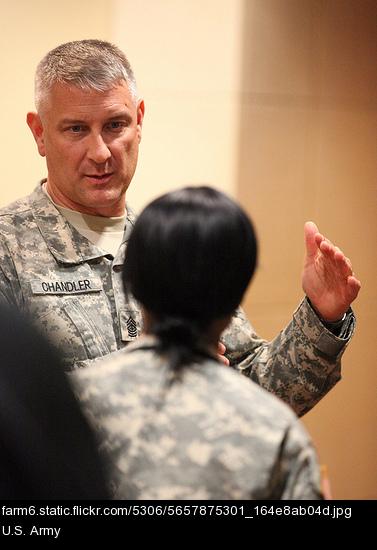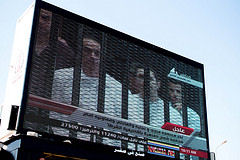How the ICC can help Kenya
The ongoing International Criminal Court trial into the so-called “Ocampo Six” is a reminder of how raw the violence around the 2007 Kenyan election remains. It now seems likely that the verdicts on the six won’t be announced until next year – until which time Uhuru Kenyatta, one of those accused of inciting ethnic violence, remains in the post of Deputy Prime Minister. Over 1100 were killed, and had the coalition agreement not come when it did, the spectre of fully-blown Civil War was a genuine possibility. The international community was in shock, having traditionally viewed Kenya as one of the least violent countries in Africa. Really, they shouldn’t have been. A brief history lesson into how Daniel Arap Moi …
One small step for a Chinese, one big step for China. Is the space race really a sign of China’s new confidence?
When westerners think about China, the concept that springs more and more to mind is modernity. This seems surprising when one looks at the statistics – after all, the developing middle class, an indicator of a more urban and modernizing society, is still a minority (perhaps 300 million of China’s 1.3 billion population), albeit a fast-growing one, and China remains a very poor country in terms of per capita GDP, as well as substantially rural. Yet in other areas, it’s clear that China is placing itself at the forefront of our understanding of what it means to be a modern state. One iconic area in this regard is space technology: the Chinese Shenzhou programme of space exploration seems particularly daring …
Talking with terrorists? A Q&A with Sir Graeme Lamb
Sir Graeme Lamb is not fond of theorising. However, the former Director of the UK Special Forces can claim to have played an important part in the initiative that pacified large parts of Iraq after 2006. Much of what he argued for is now part of the official US counterinsurgency strategy. But while it is easy for academics and other observers to demand that armed forces should ‘reach out’ to insurgents, there is precious little guidance on the practicalities of initiating a meaningful conversation with the people determined to bomb the foreigners out of their homeland. Lamb shared his insights as part of Emma Sky’s seminar series in Oxford on 25 October, jointly hosted by the Changing Character of War …
Yemen’s Winter of Discontent
As the Arab Spring continues to reverberate through the countries of the Islamic Middle East, attention has now turned to the impoverished Arabian Peninsula state of Yemen. There the popular rising against President Ali Abdallah Saleh’s regime that began last February, inspired by events in Tunisia and Egypt, is now rapidly descending into a bloody civil war. In a country where every second person owns a gun, the escalation of violence has been gradual but deadly. Hundreds have been killed during September in heavy fighting on the streets of the capital Sana’a, as forces loyal to the government have sought to violently suppress street protests. In response, army units that have defected are protecting the protestors. As these well-armed military formations …

The Responsibility to Protect: the Imperative and the Challenge
The Responsibility to Protect: the Imperative and the Challenge
Play Episode
Pause Episode
Mute/Unmute Episode
Rewind 10 Seconds
1x
Fast Forward 30 seconds
00:00
/
Subscribe
Share
RSS Feed
Share
Link
Embed
Download file | Play in new windowAt the University of Oxford Alumni Weekend, 17 September 2011, Dr Hugo Slim and Professor Jennifer Welsh, from the Oxford Institute for Ethics, Law and Armed Conflict (ELAC), discussed the concept of the ‘Responsibility to Protect’ or R2P in contemporary international relations, and its role in key cases such as Libya and post-election violence in Kenya. Dr Slim discussed the rise of the idea that certain people should be protected in times of war, suggesting that the word ‘civilian’ became a centrepiece of policy during the Bosnian War of the 1990s. He went on to talk about the role and types of ideology that encourage violence against civilians during conflict. Anti-civilian ideology, or the idea that a whole group of …
A New Phase for Conflict Resolution in Transnistria: Prospects or Risks for European Security?
The deadlock in conflict resolution in Transnistria – as ‘frozen’ as it was – seems to start ‘melting’. It was about a year ago that Russian President Dmitry Medvedev tabled an exchange proposal to German Chancellor Angela Merkel: Russia would facilitate the resumption of the 5+2 negotiations on Transnistria (Transnistria, Moldova, Russia, Ukraine and OSCE, plus US and EU as observers) in exchange for setting up a joint EU-Russia council where Moscow would have a say in some EU decision-making procedures. Both sides stressed that their conditions should be satisfied first and rejected any speculations about preconditions. It is not surprising that after 20 years of Russian support to Transnistria, there is a lot of scepticism about whether Russia’s willingness …
Visibility, seeing and displacement: on the work of the photographer Miki Kratsman
On the 31 July 2011, photographer Miki Kratsman, head of the photography department of the Bezalel Academy of Art and Design, learnt that he was the recipient of the EMET Prize for Art, Science and Culture awarded by the Prime Minister of Israel. Kratsman expressed his surprise (http://www.haaretz.co.il/hasite/spages/1239559.html): “when a minister like Liebermann is in office, and people understand his logic and do not go out to the streets and protest against the horrible things he does, I am awarded with a prize”. There is, indeed, a sharp opposition between the brutality and ruthlessness of the current Israeli government, Kratsmans’ bold interventions into the seemingly stable status quo, and the decision to award him a with prize. In a long …

Trying Mubarak
I have recently published an article entitled ‘Trying Mubarak’, discussing what has been called ‘the trial of the century’ in Egypt. I argue that the trial of former Egyptian President Hosni Mubarak, which began on 3 August 2011, represents a barometer of the fortunes of the January Revolution as a whole. A common challenge confronts both the achievement of accountability in the trial, and the fulfilment of the Revolution’s demands, namely the role of the ruling Supreme Council of the Armed Forces (SCAF). This article discusses the achievement which the holding of this trial represents in the context of the revolution, as well as the practical challenges faced by the legal team of the victims’ families. It then considers the …









